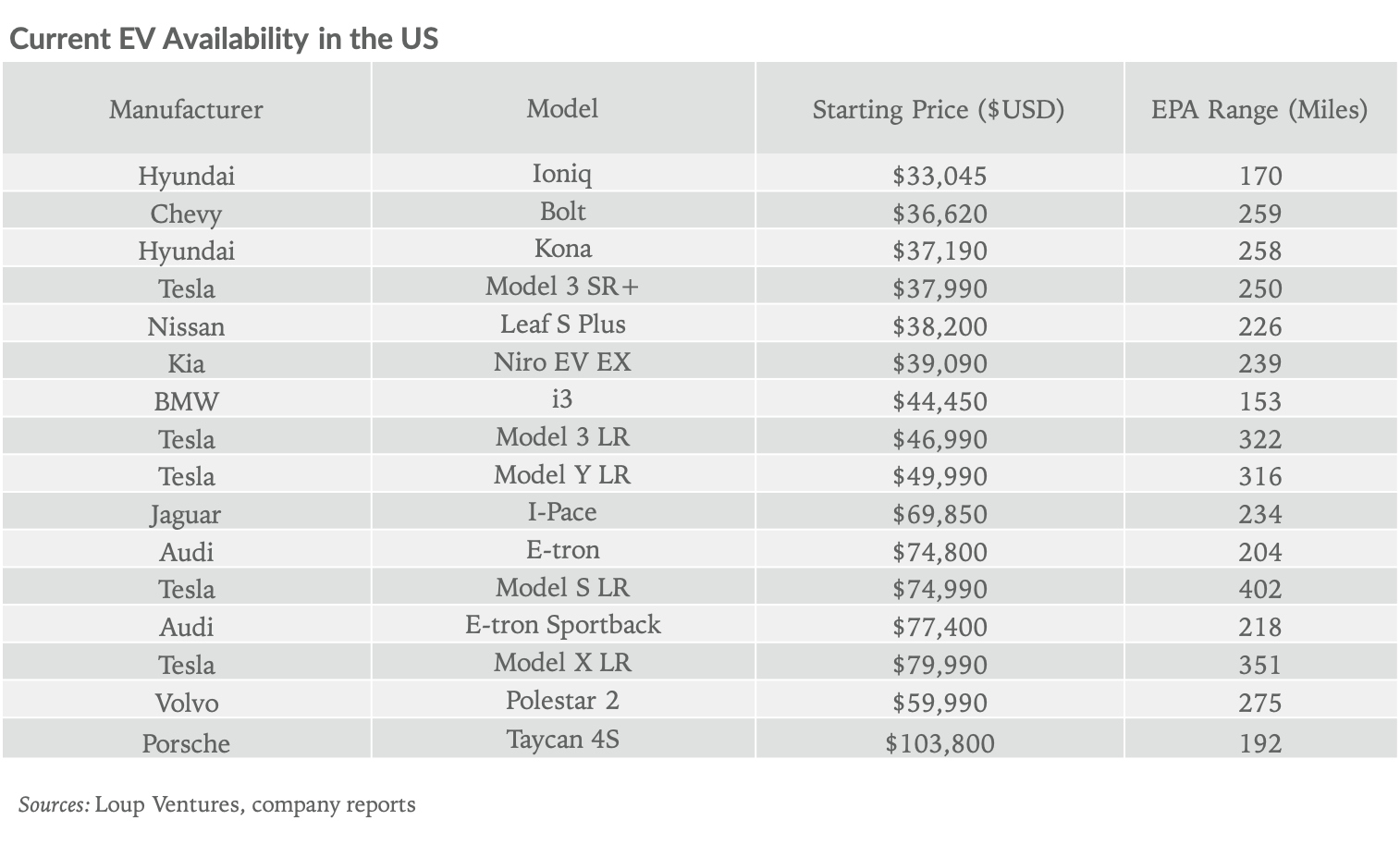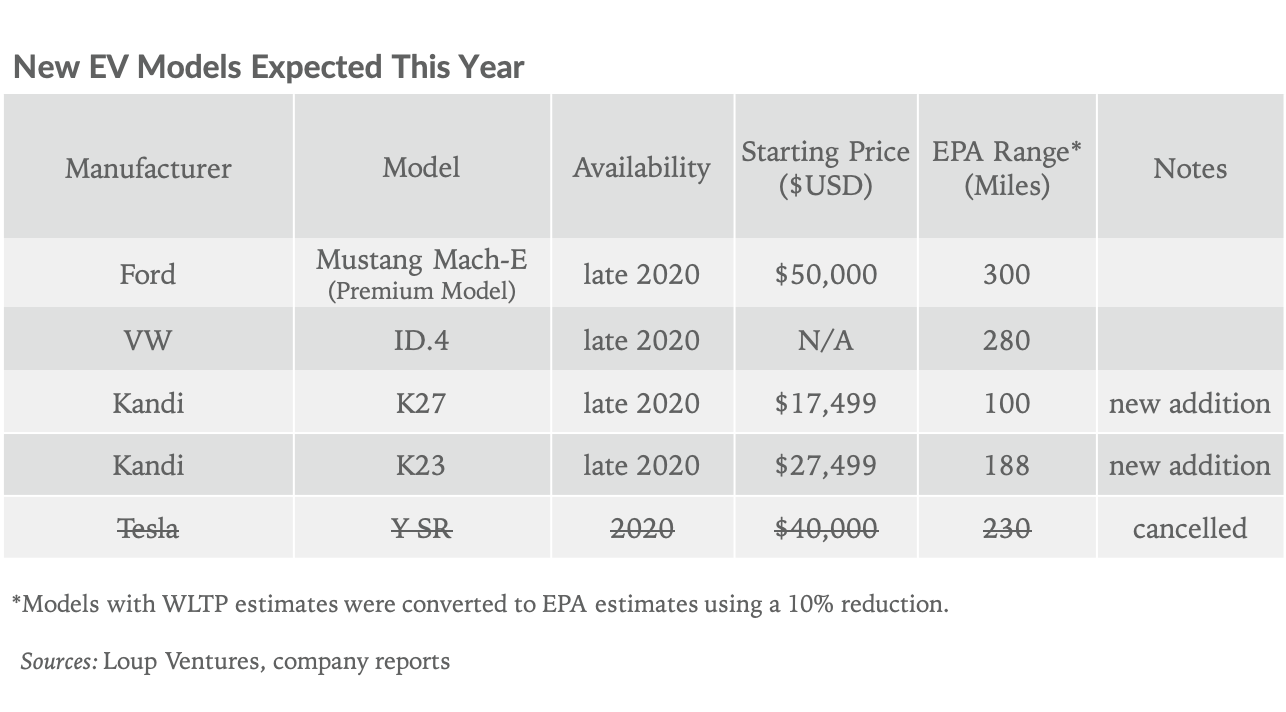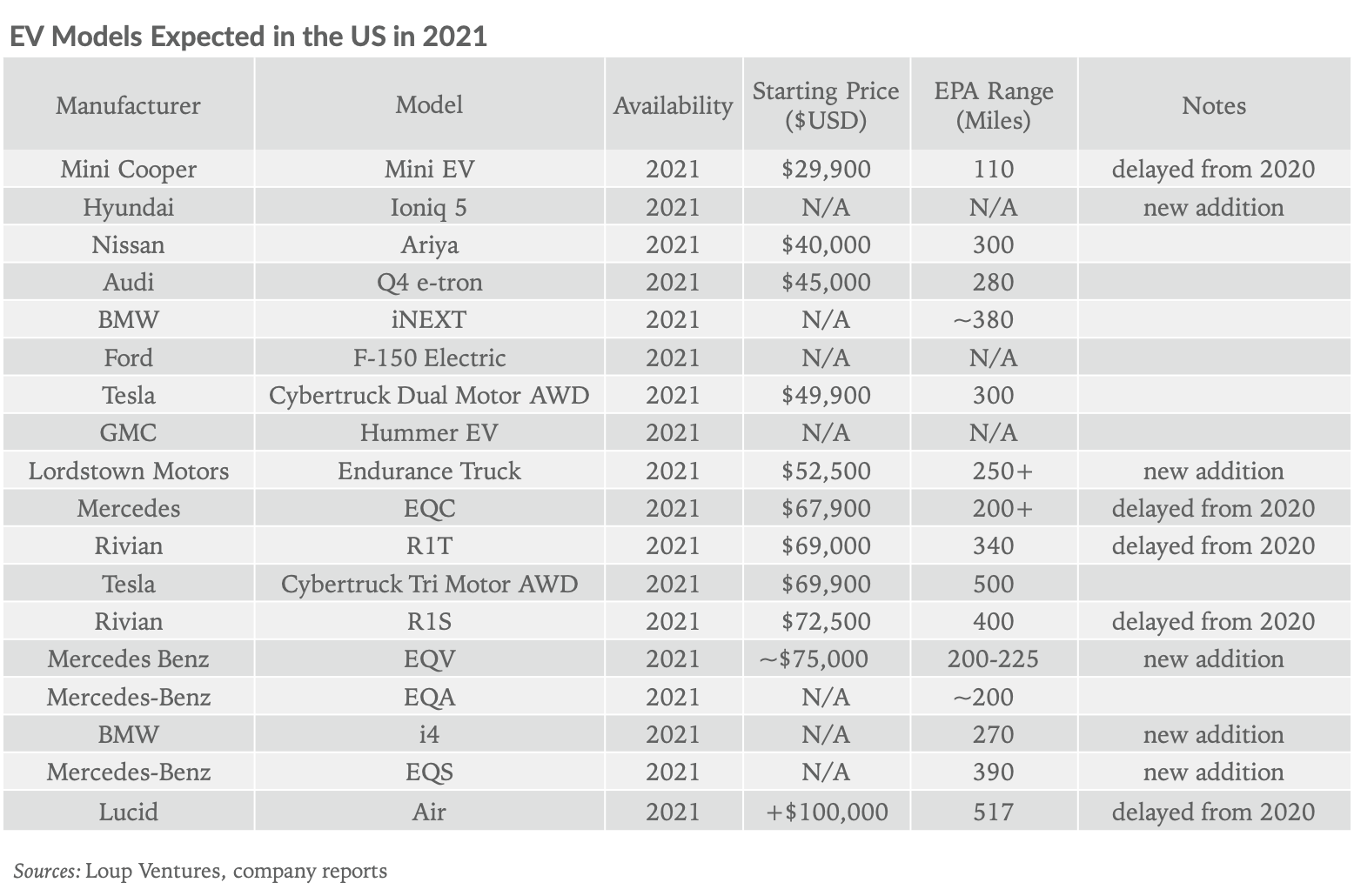Zeno was a 5th century B.C. Greek philosopher known for his riddles and paradoxes. One of his most famous paradoxes imagines a foot race between the speedy Achilles and a tortoise. The tortoise begins the race with a head start. For Achilles to overtake the tortoise, he must first, of course, catch up to the tortoise. However, once Achilles reaches the tortoise’s original starting position, the tortoise has since created a new gap, albeit smaller than the first. The pattern continues, with the tortoise creating an infinite number of ever-smaller gaps that Achilles can never close, and in the end, the tortoise maintains its lead indefinitely.
The paradox is analogous to the difficulty traditional auto will face to close the gap with Tesla. Like Achilles, traditional auto is still the heavy favorite to dominate the electric vehicle market over the next decade. Like the tortoise, Tesla had a head start. The company was founded in 2003 and produced the first Roadster in 2008. Through the first half of 2020, Tesla has roughly 80% marketshare of the US EV market, 15% share in Europe, and 20% in China.
Over the next few years, it’s unlikely that traditional auto will close the EV marketshare gap, as producing EVs is more complicated than producing traditional cars, and producing autonomous vehicles is significantly more complicated than producing EVs. With each successive jump forward in technology, Tesla creates a new gap.
Tesla’s 7-8 year head start is looking more and more like a business miracle that very few companies ever achieve.
The bottom line
Traditional auto is in a tight spot, which is compounding because of the pandemic. The last few months have resulted in some automakers delaying new EV entrants until 2021. As a result, we have increased confidence Tesla will exit 2021 with 70-80% marketshare among US EVs.
The pandemic is fortifying Tesla’s position
The pandemic is benefitting Tesla for two reasons:
- Tesla entered the year with a full EV lineup. Conversely, most traditional automakers entered the year in the design and development phase, which has led some of them to delay their EV releases and production targets. Five of the seven EVs slated to be released in the back half of 2020 have been delayed until 2021 (see table below).
- The pandemic has accelerated the shift to buying things online, an area in which Tesla is king among automakers. A CarGurus survey in April found that 61% of Americans were open to buying a car online, up from 32% before the pandemic. Tesla stands to benefit from this paradigm shift, as the company continues to make it easier to buy online. Tesla recently added friction-reducing features like Tesla Direct Drop delivery and the ability to use Apple Pay for the $100 order fee. In contrast, traditional automakers typically still require prospective buyers to request quotes and schedule test drives at local dealerships, as state laws often prohibit OEMs from shifting sales online in areas where franchise dealerships are present. While Fiat Chrysler and GM introduced new online purchasing tools ahead of schedule this spring, it’s yet another example of traditional auto simply trying to catch up with Tesla.
Current US EV offerings
To date, there are 16 electric vehicle configurations available in the US, of which 5 are Teslas. The takeaway: Tesla has the most EV options and remains the best value in the EV space.

New models expected this year
The remaining models set to be available by year-end are shown below. Since we did this exercise in June, five models have been delayed until 2021, one model has been canceled, and two models have been added.
- The highly anticipated Ford Mustang Mach-E, which is expected late this year, will have a price and mile range roughly equivalent to the Tesla Model Y LR. We see this as the most compelling Tesla alternative.
- Kandi is a Chinese auto company that held its US virtual launch event on August 18th. The K27 will represent the least expensive EV on the market. We expect the K27 and K23 to appeal only to a fraction of US EV buyers because the cost of $17,500 and $27,500 respectively are still major purchases and come with major limitations, both having less than a 200-mile range, which plays into range fears of new EV buyers.
- Musk announced on July 12 that Tesla would be canceling the Model Y SR model because the “range would be unacceptably low (<250 mile EPA).” The Model Y SR was slated to have a price of $40,000 and a range of 242 miles. Musk added that Tesla lowered the price of the Model Y LR by $3,000, which “improves affordability, while still keeping the product excellent.” The Model Y LR now starts at $49,990.
2021 Expected Models
Since June, we have added ten models to our 2021 EV outlook. Five of those are models that were expected to be available in 2020 and either production or delivery has slipped to 2021. The other five are new models announced in the last two months.


